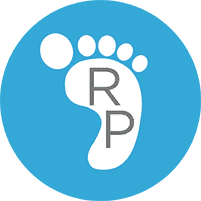
Dr. Rahul Patel, DPM, D. ABFAS, FACFAS, a board-certified podiatrist specializing in foot and ankle health, is dedicated to helping patients find relief from neuroma pain. Located in the heart of New York City, Dr. Patel offers both conservative and surgical options tailored to each patient’s needs.
What Is a Neuroma?
A neuroma is a benign thickening of the nerve tissue that develops due to irritation or compression. Morton’s neuroma is the most common type, though neuromas can occur elsewhere in the foot. The condition often results from repetitive stress, improper footwear, or biomechanical abnormalities such as flat feet or high arches.
Symptoms of Neuromas
Patients with neuromas may experience:
- Burning pain in the ball of the foot or toes.
- Tingling or numbness in the toes.
- A sensation of walking on a pebble or a fold in the sock.
- Swelling or tenderness in the affected area.
These symptoms may worsen with prolonged standing, walking, or wearing tight or high-heeled shoes.
Diagnosing Neuromas
Dr. Patel utilizes a combination of clinical evaluation and diagnostic tools to identify neuromas:
- Physical Examination: Assessing pain, tenderness, and nerve thickening through palpation.
- Imaging Studies: X-rays, ultrasound, or MRI may be used to rule out other conditions like fractures or cysts.
- Diagnostic Injections: Local anesthetics may be injected to confirm the diagnosis and provide temporary relief.
Treatment Options for Neuromas
Treatment for neuromas typically begins with conservative approaches. If symptoms persist, surgical options may be considered.
Conservative Treatments
- Footwear Modifications:
- Wearing wider, supportive shoes with a low heel to reduce pressure on the forefoot.
- Adding custom orthotics to correct biomechanical issues.
- Padding and Taping:
- Metatarsal pads or foot taping can offload pressure from the affected area.
- Medications:
- Over-the-counter anti-inflammatory medications to reduce pain and swelling.
- Physical Therapy:
- Ultrasound therapy or exercises to improve foot function and alleviate pain.
- Corticosteroid Injections:
- Targeted injections to reduce inflammation around the nerve.
Surgical Treatments
If conservative treatments fail to provide relief, surgical intervention may be necessary. Dr. Patel specializes in minimally invasive techniques, ensuring quicker recovery times.
- Nerve Decompression:
- Removing pressure on the affected nerve by releasing surrounding structures.
- Neurectomy:
- Removing the damaged portion of the nerve to eliminate pain.
Post-operative care includes physical therapy and proper footwear to prevent recurrence.
Q&A: Neuromas Explained
Q: What causes a neuroma?
A: Neuromas often develop due to repetitive irritation or compression of the nerve. This can result from wearing tight shoes, engaging in high-impact activities, or having underlying foot conditions like flat feet or bunions.
Q: Are neuromas permanent?
A: Neuromas are treatable. Conservative treatments often alleviate symptoms, and surgical options can provide long-term relief for persistent cases.
Q: How can I prevent a neuroma from recurring?
A: Wearing proper footwear, avoiding prolonged pressure on the forefoot, and using custom orthotics can reduce the risk of recurrence.
Q: How long does recovery take after surgery?
A: Recovery typically takes 4-6 weeks, during which patients may need to limit weight-bearing activities. Most patients can resume normal activities within 6-8 weeks.
Q: Can neuromas affect both feet?
A: Yes, neuromas can occur in one or both feet, though it is more common for only one foot to be affected.
Expert Care for Neuromas
If you’re experiencing foot pain or suspect a neuroma, don’t wait to seek help. Dr. Rahul Patel and his team offer personalized care to help you get back on your feet, pain-free.
Contact Information:
- Address: 245 5th Ave, Suite 310, New York, NY 10016
- Phone: (347) 851-1491
Schedule your consultation today to explore your treatment options and start your journey to relief!
